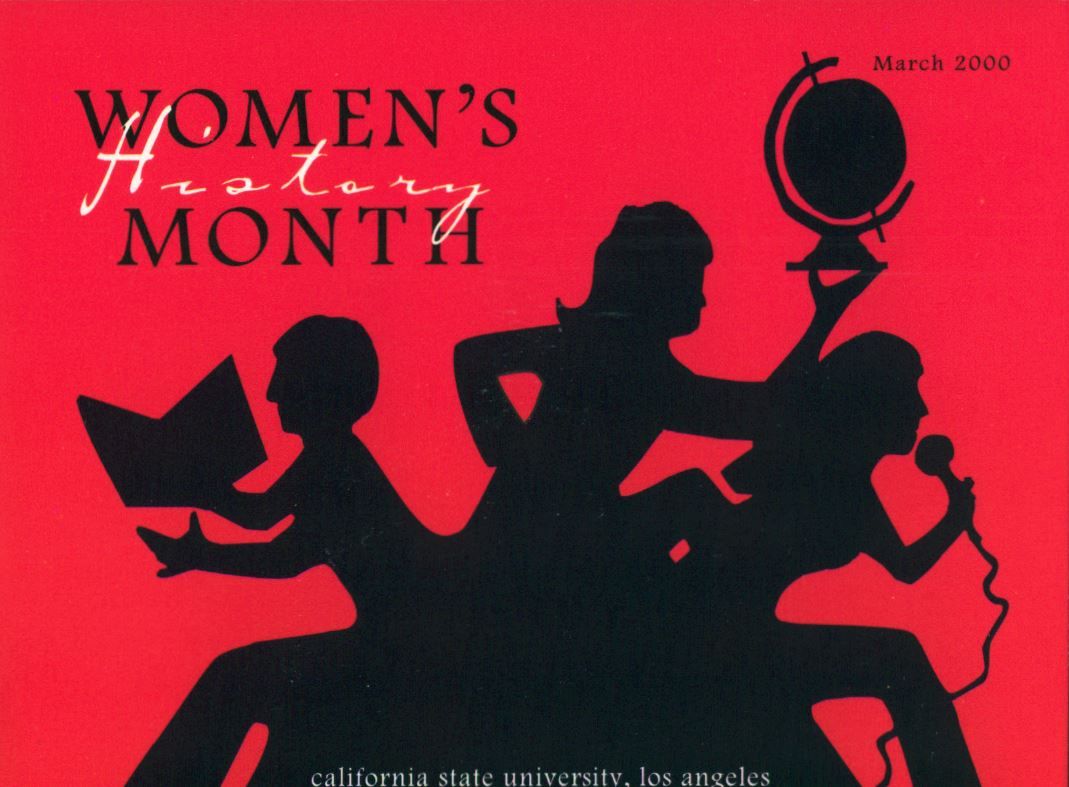Women's History Month Before COVID-19: A Tribute To Dr. Carole Srole
The entire world has been affected by the rapid spread of the Coronavirus and COVID-19, the disease that it causes. This pandemic has impacted all aspects of daily life. It has placed a temporary hold on research in most academic fields, such as Women’s history. At Cal State LA, a tradition originally established in 1984 to honor women of the past was also affected. Moreover, Dr. Carole Srole, the very founder of Women’s History Month at Cal State LA, cannot return to teach what would have been her last semester in Fall 2020, as a result of the ongoing pandemic.
Dr. Carole Srole, Professor Emerita of Gender and Labor History, joined Cal State LA’s History Department in 1984. As the only woman in the department, Dr. Srole was motivated to expand an existing program for Women’s History Month that could highlight the history department as well as represent the campus community. This Special Feature team had the pleasure to interview Dr. Srole about her experiences at Cal State LA.
In the early 1990s, Dr. Srole worked with the Women’s Resource Center and developed ideas for the program. She helped create and coordinate events including on-campus lectures by prominent feminists or movie screenings. “We tried to have a variety of things…. We even had Maya Angelou come for a lecture one year!” Dr. Srole always emphasized the diversity of women’s experiences and pasts.
Funding was a constant issue Dr. Srole faced, so having speakers like Maya Angelou was exceptional. For that reason, UC Berkeley scholar Maxine Kingston or Joy Luck Club author Amy Tan, never made it to Cal State LA because there was not enough money. “I couldn’t get people for reasonable amounts, so that’s when I gave up trying to get famous speakers.” She transitioned to in-class lectures and films, which she felt was more accessible to the students and faculty. She created and posted eye-catching flyers around hallways advertising the events. Eventually in 1993 with permission from the History department, Dr. Srole added the glass exhibit case in King Hall where she created unique and captivating displays each year for Women’s History Month. Some of the exhibit themes were on Women in Prostitution (1997), Notorious Women in History (2000) and Women’s Roles During War (2002). This year, immediately before campus closed on March 12, 2020, the Special Feature Editors curated the glass case commemorating Women’s History Month at Cal State LA.
Dr. Srole accomplished her goal of bringing Women’s History Month to Cal State LA and expanded the overall program. We asked how she envisioned the future of Women’s History Month, and she became visibly disappointed. She is concerned about the decline of History majors overall, and the decreasing interest in social history. Her sooner than anticipated retirement will leave it up to her colleagues in the department to reemphasize the importance of Women’s History Month and the program she created.
We asked Dr. Srole about the best way to preserve Women’s History Month at Cal State LA and without hesitation she said, “get more students involved.” She fears that it may be difficult for faculty members to take on more responsibilities, including organizing the program. This Special Feature Team urges current students and alumni to participate in the future of Women’s History Month at Cal State LA. She also urges all of us to keep asking questions and to watch out for different ways in which history is censored.
Thus our conversation with Dr. Srole concluded with a discussion of the controversy that erupted early in January around the National Archives’ decision to blur out signs criticizing President Donald Trump at the 2017 Women’s March. The National Archives apologized; however, the damage was done as countless Americans, especially women, lost confidence in the institution. We asked Dr. Srole to share her thoughts about this dispute, however as the thoughtful teacher-scholar she is, she asked questions about the factors that went into the decision to censor criticisms of Donald Trump. The National Archives argued that they were trying to emphasize the continuity of women’s rights since women got the vote and wanted to deemphasize the critiques of President Trump. However, Dr. Srole pointed out that one can’t really show women’s rights without providing context. Thus, posing the questions of whether the National Archives considered the implications of Trump’s relationship to them and other federal departments? Were they worried about funding? Did the higher-ups weigh into the decision or just the lower-level staff? When thinking about the significance of censoring the image, Dr. Srole asked us to consider whether this is an example of self-censorship for fear of the administration? Or, censorship from the administration itself? With these questions, Dr. Srole left us with a lot to think of and more importantly showed us that the future of Women’s History Month and Women’s issues is in our hands.
Women's History Month Past Posters/Flyers Gallery



